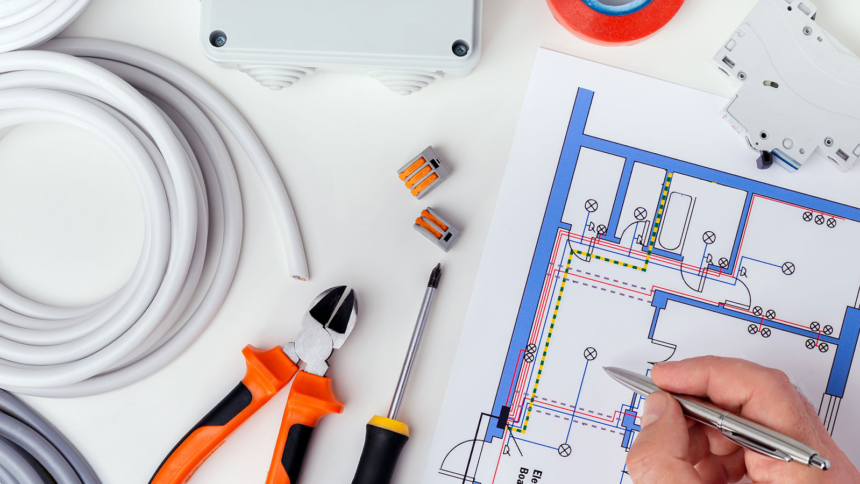As the warmer months approach, many of us are eager to spend more time outdoors, whether it’s gardening, entertaining, or simply relaxing in the sunshine. While we enjoy the benefits of our outdoor spaces, it’s essential to remember that outdoor electrical hazards can pose significant risks to our homes and families. From electrical shock to fire hazards, outdoor electrical safety should be a top priority for homeowners and landlords alike, especially in bustling cities like London. In this comprehensive guide, we’ll explore essential tips and precautions to help you protect your home and loved ones from outdoor electrical dangers, including the importance of the Landlord EICR certificate for ensuring the safety of rental properties in London.
1. Inspect Outdoor Electrical Fixtures
Before you start using outdoor electrical appliances or lighting fixtures, take the time to inspect them thoroughly. Look for signs of damage, such as frayed wires, cracked outlets, or rusted components. Ensure that all outdoor outlets and fixtures are properly weatherproofed and designed for outdoor use.
2. Keep Water Away from Electrical Outlets
Water and electricity don’t mix, so it’s crucial to keep outdoor electrical outlets and appliances dry. Install weatherproof outlet covers and enclosures to protect outlets from rain, sprinklers, or other sources of moisture. Avoid using electrical appliances or power tools in wet conditions to prevent electric shocks or short circuits.
3. Use Outdoor-Rated Extension Cords
When powering outdoor appliances or lighting, always use extension cords specifically designed for outdoor use. These cords are typically more durable and have built-in weatherproofing features to withstand exposure to the elements. Avoid using indoor extension cords outdoors, as they may not provide adequate protection against moisture and weather damage.
4. Practice Safe Extension Cord Usage
When using extension cords outdoors, avoid running them across walkways or areas where they could be damaged by foot traffic, lawn mowers, or other equipment. Secure extension cords to the ground using cord clips or stakes to prevent tripping hazards and damage to the cord insulation. Regularly inspect extension cords for signs of wear or damage and replace them as needed.
5. Install Ground Fault Circuit Interrupters (GFCIs)
GFCIs are essential safety devices designed to protect against electric shocks in areas where water is present, such as outdoor outlets, bathrooms, and kitchens. Install GFCI outlets or circuit breakers to provide additional protection against electrical hazards and ensure compliance with safety regulations.
6. Keep Trees and Foliage Away from Power Lines
Overgrown trees or foliage near power lines can pose a serious risk of electrical fires or power outages. Trim back trees and shrubs to maintain a safe distance from overhead power lines, and never attempt to prune trees near power lines yourself. Contact your local utility company for assistance with tree trimming or removal near power lines.
7. Avoid Overloading Circuits
Outdoor electrical circuits should never be overloaded with too many appliances or devices. Distribute your electrical load evenly across multiple circuits to prevent overheating, tripped breakers, or electrical fires. If you find yourself frequently tripping breakers or experiencing power fluctuations outdoors, consult a qualified electrician to assess your electrical system’s capacity and make any necessary upgrades.
8. Secure Outdoor Lighting Fixtures
Ensure that outdoor lighting fixtures, such as wall sconces, pathway lights, or garden lights, are securely mounted and protected from vandalism or accidental damage. Use weatherproof mounting hardware and fixtures rated for outdoor use to withstand exposure to wind, rain, and other weather conditions.
9. Educate Children about Electrical Safety
Teach children about the dangers of playing with electrical outlets, cords, or appliances outdoors. Encourage them to avoid climbing trees near power lines or tampering with electrical fixtures. Supervise outdoor activities involving electrical appliances or tools to ensure children’s safety at all times. For landlords seeking to enhance the safety of their rental properties, consider obtaining Landlord Certification comprehensive Landlord Safety Certificates to meet regulatory requirements and ensure the well-being of your tenants.
10. Schedule Regular Electrical Inspections
Periodic inspections of your outdoor electrical system by a qualified electrician can help identify potential hazards or code violations before they escalate into serious problems. Schedule an annual inspection to check for loose connections, corrosion, or other issues that could compromise the safety of your outdoor electrical system.
Conclusion
Outdoor electrical safety is paramount for protecting your home and family from potential hazards and accidents. By following these tips and precautions, you can enjoy your outdoor spaces with peace of mind, knowing that your electrical system is safe and properly maintained. Remember to stay vigilant, practice safe usage of outdoor electrical appliances and fixtures, and seek professional assistance when needed to ensure the continued safety and functionality of your outdoor electrical system. With the right precautions in place, you can create a safe and enjoyable outdoor environment for you and your loved ones to enjoy year-round. For landlords overseeing multiple properties, effective Property Management strategies are essential to maintain the safety and functionality of all electrical systems across your portfolio. Consider incorporating Landlord Certification’s services to streamline your property management processes and ensure compliance with safety regulations.


